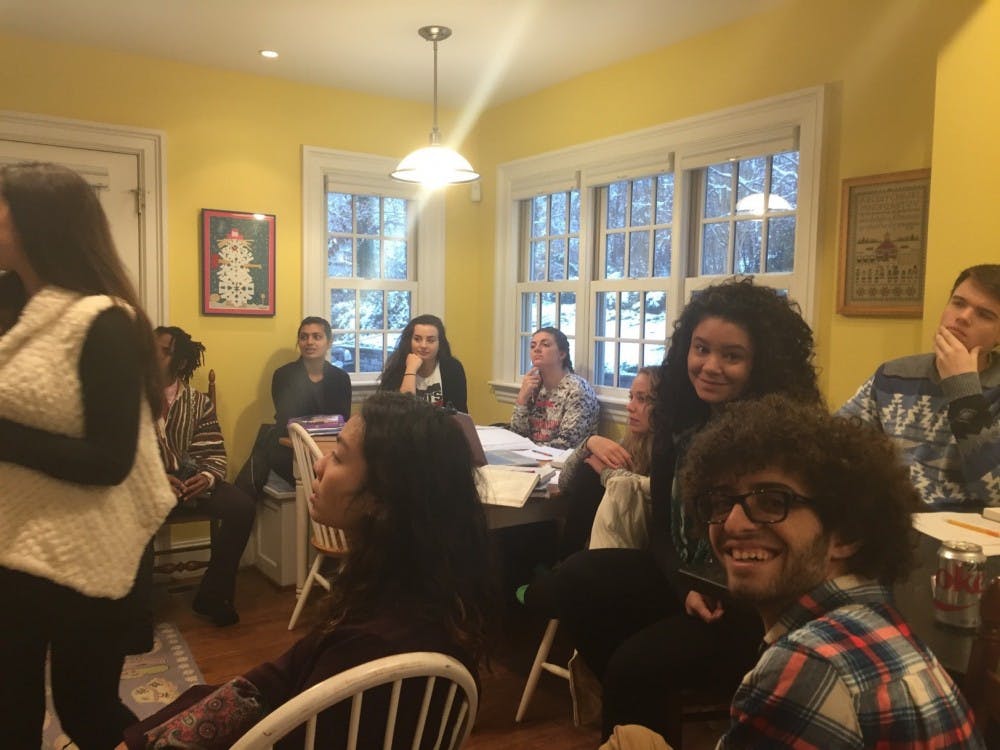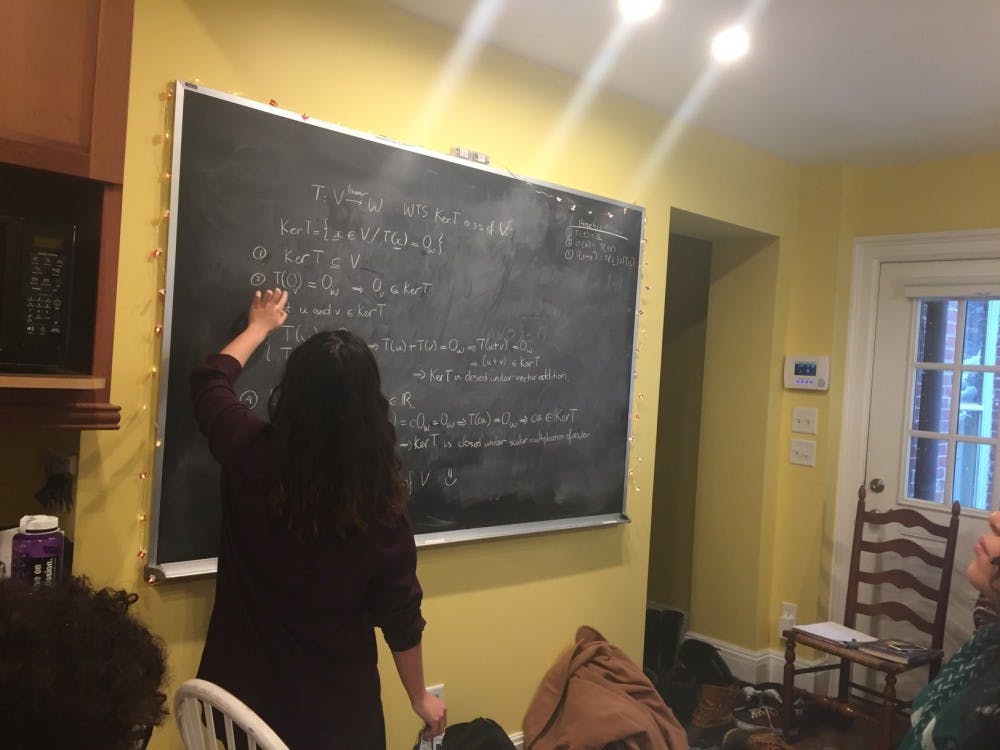Picture a quaint kitchen table with a plate of chocolate-chip cookies in the middle and a pot of coffee brewing on the counter. The picture you have in your mind is what Della Dumbaugh’s home looks like, filled with University of Richmond students, on a typical day.
Dumbaugh, a University of Richmond mathematics professor, lives only a three-minute walk from campus. She, along with Rick Mayes, Lidia Radi and other professors at UR, frequently invite students over to their homes to learn, review for tests and build relationships.
“I hung a blackboard in the middle of my kitchen,” Dumbaugh said. “The policy at my house is that only students hold the chalk, which means they are working problems and proving theorems.
“Changing the medium, going from pencil and paper to blackboard and chalk, increases learning. Students gain confidence standing at the board in the kitchen. It isn’t as pressure-filled as a classroom.”
Junior Basel Arafat think this low-stakes change of scenery benefits learning greatly.
“Each one of us had to get on the board and do a problem,” Arafat said about Dumbaugh’s home.
“That pushes you out of your comfort zone,” Arafat said. “Plus, if it was just a review session in a normal classroom, I might not have gone. But since it was in her kitchen, I knew I had to free up my schedule to go to it.”
Both teachers and students say stepping outside the classroom fosters a stronger relationship and sense of comfort and friendship between each other.

Students at the home of professor Della Dumbaugh. Photo courtesy of Della Dumbaugh.
Lidia Radi, a humanities professor at UR, lived on campus from 2007-2012 in Moore Hall as a faculty fellow.
“I believe in creating an intellectual community outside the classroom, and I could do that while living on campus,” Radi said.
When she moved off campus, Radi maintained this commitment and began inviting students to her home for dinners, discussions, learning and laughs.
Enjoy what you're reading?
Signup for our newsletter
“Where I am from, Albania and Italy, food is a very important component in bringing the community together,” Radi said. “It is around food that you discuss your life, open up, clear your doubts and gain wisdom.”
This sense of community helps Radi become closer with her students, she said.
“Taking students to the home helps us establish stronger relationships,” Dumbaugh agreed.
Rick Mayes, a public health professor at UR, loves his home location behind New Fraternity Row on campus.
“A lot of my professional life blends in with my personal life and vice versa,” Mayes said. “Living nearby makes that so much easier.”
The benefits of living close to campus go beyond just student engagement, but also professors’ personal lives, they said.
“A big part of a lot of Americans’ lives is a lengthy commute,” Mayes said. “That takes a toll, physically and mentally, for a lot of people.
“As someone who teaches public health, I was always willing to pay more so I could commute less. It’s an investment in my health and my family’s health.”
UR prides itself on being a small school where professors can get to know each of their students on a personal level and bond with them. For professors like Dumbaugh, Radi and Mayes, this commitment continues outside the classroom.
“Teaching goes beyond students just taking a test and getting a grade,” Radi said. “Learning should be something that teaches students to live lives of purpose and depth and to question things around them. To do that, the conversation must continue beyond the classroom.”
Contact senior features writer Alex Maloney at alexandra.maloney@richmond.edu.
Support independent student media
You can make a tax-deductible donation by clicking the button below, which takes you to our secure PayPal account. The page is set up to receive contributions in whatever amount you designate. We look forward to using the money we raise to further our mission of providing honest and accurate information to students, faculty, staff, alumni and others in the general public.
Donate Now



